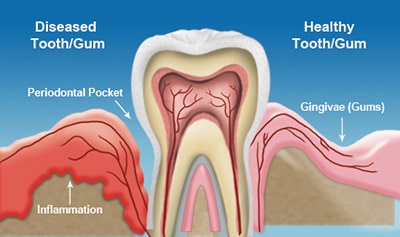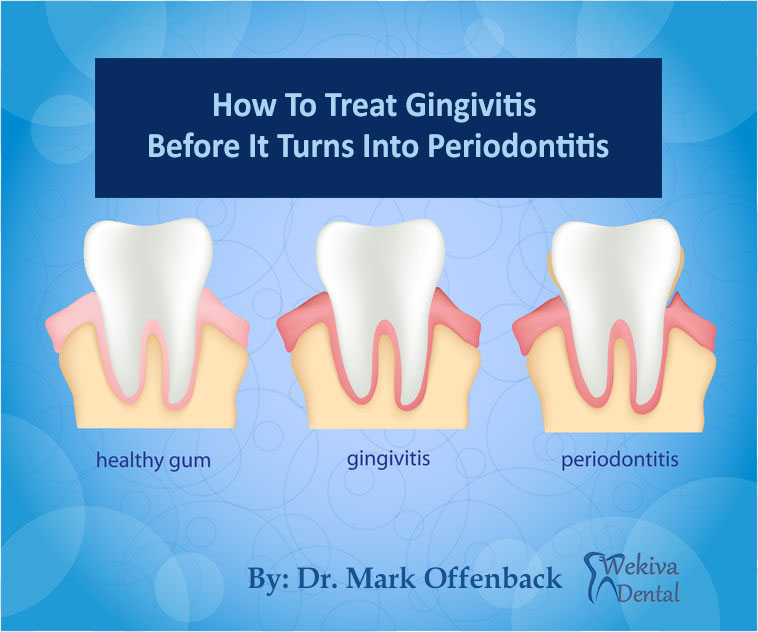
If you’re suffering from gum inflammation, you may want to learn more about gingivitis treatments. Fortunately, this condition can be successfully treated, even if it’s in the early stages. In many cases, you can get treatment for gingivitis at home and be back to normal in a couple weeks. For more advanced cases, a trip to your dentist may be necessary. There are a variety of treatments available to help you fight back against the disease.
One of the best gingivitis treatments is root planing, which smoothes out the root surfaces and eliminates bacteria breeding grounds. While this procedure may cause some sensitivity, it usually subsides quickly. It requires a local anesthetic, but some patients request nitrous oxide for added relaxation. Proper treatment for gingivitis is important to preventing the disease from progressing to periodontitis.
Another treatment for gingivitis involves using a special mouthwash and applying pressure on the gum tissues to prevent pockets from forming. These procedures may require a few visits to the doctor and may involve a change in diet or supplementation. During and after treatment, you will be provided with a prescription for special mouthwash. You should also follow your dentist’s advice when it comes to taking medications, and never try to adjust them on your own. Finally, proper oral hygiene is vital to treating and curing gingivitis. You should brush and floss your teeth at least twice a day, and floss to remove any food particles and plaque that may be caught in between your teeth.
In some rare cases, plaque is the cause of gingivitis. However, this is not the case. In some cases, the condition is caused by a specific virus or bacterium. Certain medications, wounds, or foreign bodies can also trigger dry mouth. If left untreated, gingivitis can worsen and lead to periodontal disease. If you are experiencing symptoms of gingivitis, it’s essential to seek treatment immediately.
In addition to gingivitis treatments, you can take measures to prevent it from becoming a problem in the first place. A regular dentist visit can help you spot the symptoms before they become severe. Using a special toothpaste like Corsodyl will help stop bleeding gums and remove plaque bacteria along the gum line. It will also keep your teeth and gums strong and healthy. And, it’s easy to maintain proper oral hygiene.
You can treat gingivitis at home by using home remedies. Regular brushing with a triclosan-containing toothpaste will reduce the buildup of plaque and gums. Daily flossing will help remove the plaque between your teeth. You should also see a dentist every six months for regular cleanings and checkups to ensure that you’re getting the best possible treatment. This will prevent the disease from worsening.

The best gingivitis treatments include brushing twice a day with a soft toothbrush and flossing between each tooth. These methods can help you reverse the damage caused by gingivitis and prevent it from advancing into periodontitis. You should also floss at least once daily, but only in the areas where the plaque is most visible. This will prevent the infection from becoming too advanced. If you don’t feel like flossing, you should visit your dentist for gum disease treatment.
In addition to treating gingivitis, it is important to avoid taking prescription medications. These medications can change your natural condition, making you more susceptible to gum disease. Some of these medications may reduce salivation, increasing your chance of developing gingivitis. Although it is not painful, gum inflammation can cause the gums to pull away from the teeth. In addition, your gums may weaken and begin to bleed. All of these signs are signs of gingivitis.
Fortunately, there are many gingivitis treatments that can reverse the condition and prevent periodontitis. The most effective treatments can reverse the damage caused by this disease and help you return to a healthier state. But be sure to consult your dentist if you suffer from gingivitis. The sooner you start treatment, the better. And remember that early treatment is the key to maintaining healthy gums.
Treatment for gingivitis can range from over-the-counter products to prescription medications. Depending on your condition, you may need to have regular dental cleanings and visits to your hygienist. Antibacterial and anti-plaque products can be used at home or in the dental office. The site tonerin.net
says that while oral medications are the most effective ways to treat gingivitis, you should also be aware of the side effects and benefits of various medications.